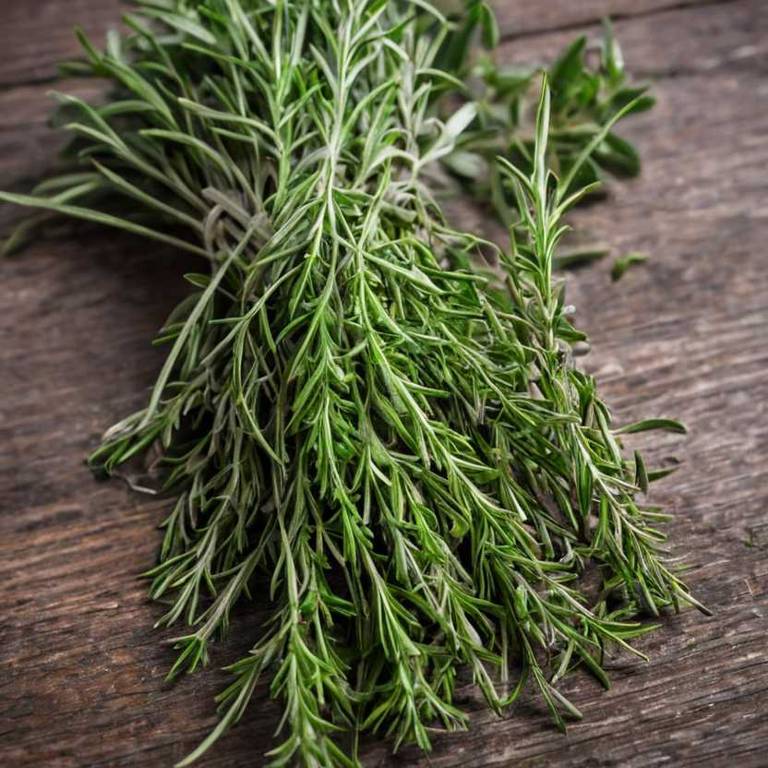By Leen Randell
Updated: Jul 05, 2024
What Are The Medicinal Properties Of Rosmarinus Officinalis (Rosemary)?

Rosmarinus officinalis, also known as rosemary, has health benefits such as improved cognitive function, reduced inflammation, and antimicrobial properties.
The herb contains essential oils such as carnosic acid, camphor, and borneol, which contribute to its medicinal value. Rosemary is used in various medicinal preparations, including teas, oils, and capsules. While generally considered safe, rosemary may cause digestive issues, allergic reactions, or interact with certain medications.
It is essential to consult a healthcare professional before using rosemary, especially in large quantities or combined with other herbs.
This article explains the health benefits, active constituents, medicinal preparations, possible side effects, and precautions related to Rosmarinus officinalis.
- What are the health benefits of Rosmarinus officinalis?
- What are the active constituents of Rosmarinus officinalis?
- What are the medicinal preparations of Rosmarinus officinalis?
- What are the possible side effect of using Rosmarinus officinalis improperly?
- What precautions to take when using Rosmarinus officinalis medicinally?
What are the health benefits of Rosmarinus officinalis?
Rosmarinus officinalis, also known as rosemary, has health benefits such as reducing inflammation, improving cognitive function, and boosting antioxidant levels in the body.
Studies have shown that rosemary may help alleviate symptoms of arthritis, improve memory and focus, and protect against cell damage from free radicals.
Additionally, its essential oils may help alleviate digestive issues and promote healthy gut bacteria, supporting overall well-being.
Here's a detailed article about the 10 health benefits of Rosmarinus officinalis.
What are the active constituents of Rosmarinus officinalis?
Rosmarinus officinalis, also known as rosemary, has active constituents such as carnosic acid, rosmarinic acid, and camphor, which contribute to its medicinal properties.
The plant's essential oil, obtained through steam distillation, contains these compounds in varying proportions. Carnosic acid exhibits antioxidant and anti-inflammatory effects, while rosmarinic acid is known for its antimicrobial and anti-inflammatory activities.
The presence of camphor contributes to the plant's analgesic and anti-spasmodic properties.
Here's a detailed article about the 10 active constituents of Rosmarinus officinalis.
What are the medicinal preparations of Rosmarinus officinalis?
Rosmarinus officinalis, also known as rosemary, has medicinal preparations such as essential oils, capsules, and extracts that are used to alleviate symptoms of digestive issues, headaches, and respiratory problems.
The antioxidant and anti-inflammatory properties of rosemary are thought to contribute to its therapeutic benefits. It is also used as a memory aid and to reduce stress and anxiety.
Rosemary preparations can be applied topically or taken orally, depending on the specific health concern.
Here's a detailed article about the 10 medicinal preparations of Rosmarinus officinalis.
What are the possible side effect of using Rosmarinus officinalis improperly?
Improper use of Rosmarinus officinalis, also known as rosemary, increases the chances of experiencing side effects such as dizziness, headaches, and stomach upset due to its high levels of thujone, a toxic compound.
High doses can also cause seizures, muscle weakness, and fatigue in some individuals.
Additionally, pregnant and breastfeeding women may need to exercise caution when consuming rosemary due to its potential to stimulate the uterus and affect fetal development.
Here's a detailed article about the 10 most common side effects of Rosmarinus officinalis.
What precautions to take when using Rosmarinus officinalis medicinally?
Before using Rosmarinus officinalis, also known as rosemary, for medicinal purposes, you must take precautions such as consulting with a healthcare professional, as it can interact with certain medications, including blood thinners, diabetes medications, and sedatives.
Additionally, high doses can cause dizziness, nausea, and increased heart rate.
Pregnant and breastfeeding women should also use caution, as rosemary may stimulate uterine contractions or affect infant development.
Here's a detailed article about 10 precautions to take when using Rosmarinus officinalis.